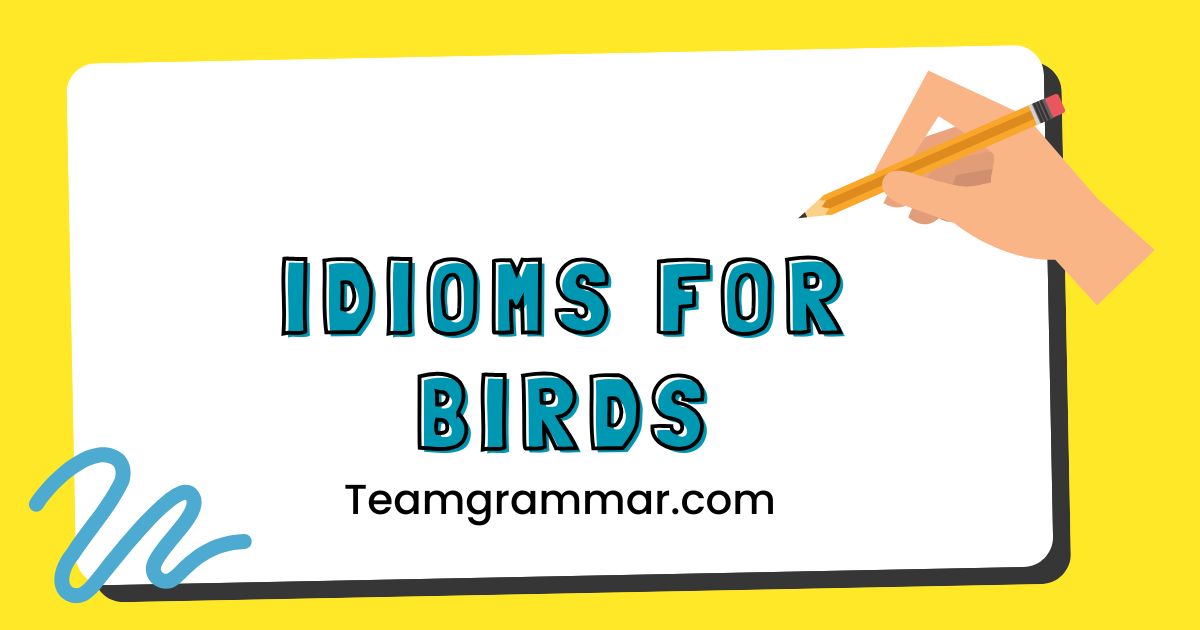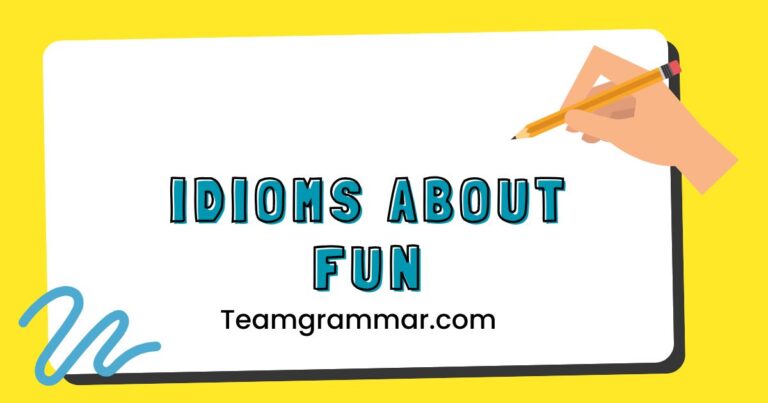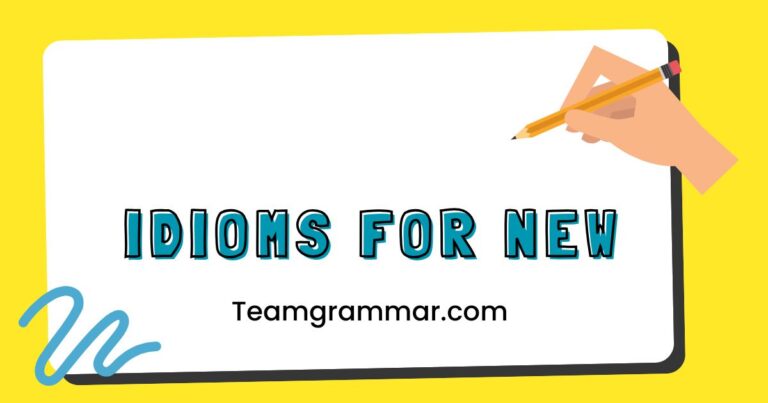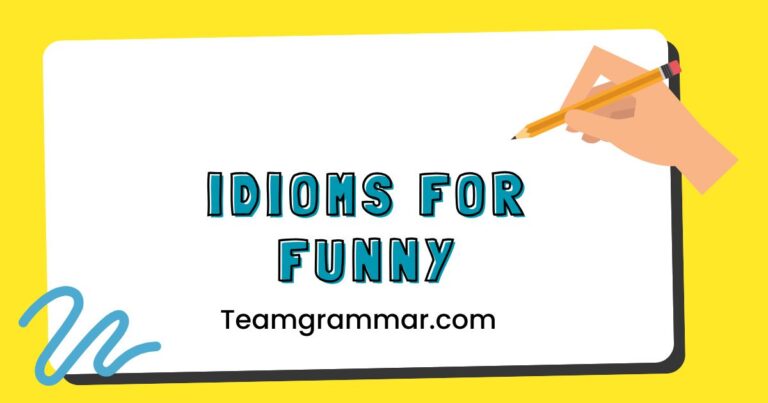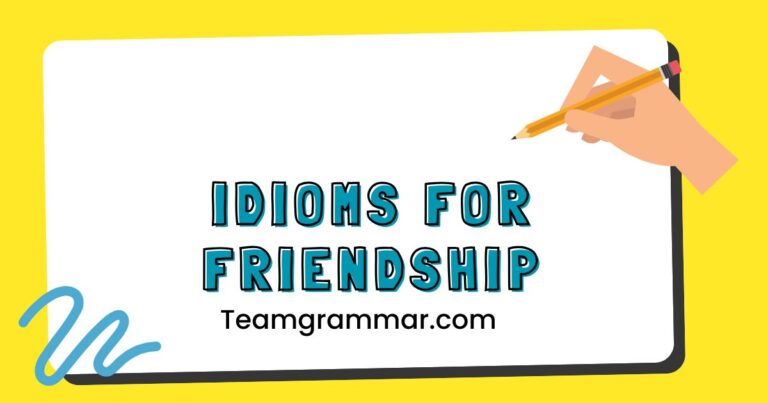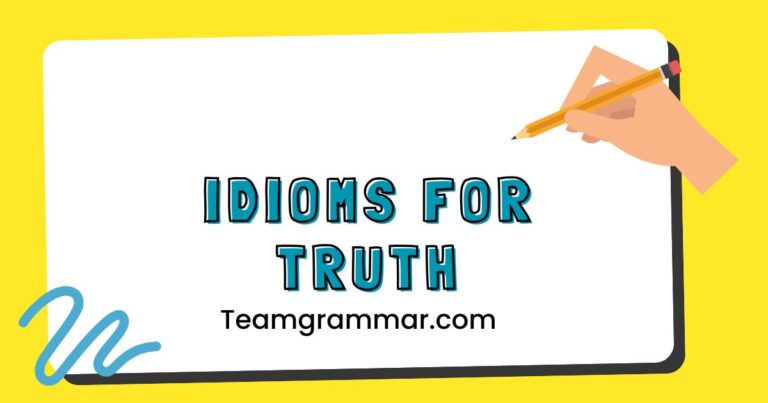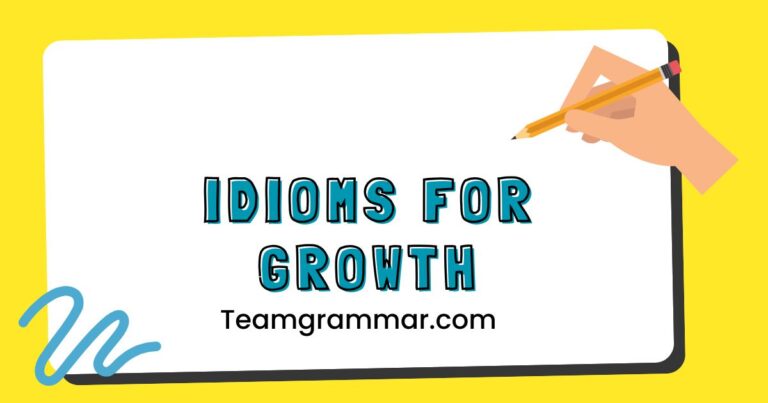49 Idioms for Birds: A Comprehensive Guide to Avian Expressions
Idioms add color and depth to the English language, offering a figurative way to express ideas and emotions. Among the most vivid idioms are those featuring birds, drawing on their unique characteristics and behaviors to create memorable expressions.
Understanding these idioms not only enhances your comprehension of English but also provides insights into cultural perspectives. This guide is designed for English language learners, teachers, and anyone interested in enriching their vocabulary and appreciating the nuances of idiomatic language.
Table of Contents
- Introduction
- Definition of Idioms
- Structural Breakdown of Bird Idioms
- Types of Bird Idioms
- Examples of Bird Idioms
- Usage Rules for Bird Idioms
- Common Mistakes with Bird Idioms
- Practice Exercises
- Advanced Topics in Bird Idioms
- Frequently Asked Questions
- Conclusion
Definition of Idioms
An idiom is a phrase or expression whose meaning cannot be understood from the literal meanings of its individual words. Instead, an idiom conveys a figurative meaning that is culturally specific.
Idioms are a vital part of everyday language, adding richness and nuance to communication. They often reflect the culture and history of a language, offering insights into the way people think and perceive the world.
In the context of bird idioms, the characteristics and behaviors of birds are used metaphorically to describe human traits, situations, or emotions. These idioms can range from describing someone as “free as a bird” to warning against “killing two birds with one stone.” The effectiveness of these idioms lies in their ability to evoke vivid imagery and convey complex ideas in a concise and memorable way.
Idioms are often categorized based on their function or the type of figurative language they employ. Some idioms are similes, using “like” or “as” to make a comparison, while others are metaphors, directly equating one thing with another.
Understanding the underlying figurative meaning is crucial for interpreting idioms correctly and using them effectively.
Structural Breakdown of Bird Idioms
Bird idioms, like all idioms, typically consist of a fixed sequence of words. Changing the order or substituting words can alter or destroy the idiom’s meaning.
These idioms often incorporate verbs, nouns, and adjectives that relate to birds, such as “fly,” “feather,” “bird,” “eagle,” “chicken,” and “hawk.” The structure of a bird idiom is not always grammatically conventional when taken literally, which is why understanding the figurative meaning is essential.
The components of a bird idiom work together to create a single, unified meaning. For example, in the idiom “a bird in the hand is worth two in the bush,” the individual words have their literal meanings, but the idiom as a whole conveys the idea that it’s better to hold onto something certain than to risk losing it by trying to get something better but uncertain.
This idiom utilizes a comparison to emphasize the value of certainty over potential gain.
Understanding the grammatical structure of bird idioms can aid in their comprehension. Many bird idioms follow common sentence structures, such as subject-verb-object or subject-verb-complement.
Recognizing these patterns can help learners identify and interpret idioms more effectively. However, it is crucial to remember that the meaning of the idiom is not derived from the grammatical structure alone but from the established figurative usage.
Types of Bird Idioms
Bird idioms can be categorized based on various factors, including the aspect of bird behavior or characteristics they highlight, and the overall meaning they convey. Here are some common types:
Behavioral Idioms
These idioms draw on the typical behaviors of birds to describe human actions or situations. They often use verbs associated with bird actions, such as flying, nesting, or pecking, to convey a figurative meaning.
For instance, “to fly the coop” means to escape or leave a situation, drawing on the image of a bird escaping from its cage or enclosure. Similarly, “to feather one’s nest” means to enrich oneself, often at the expense of others, alluding to the way birds gather materials to build their nests.
Understanding these idioms requires knowledge of common bird behaviors and the ability to connect these behaviors to human experiences or situations. They offer a vivid and often humorous way to describe actions and motivations.
Physical Characteristic Idioms
These idioms focus on the physical attributes of birds, such as their feathers, wings, or beaks, to create figurative meanings. They often use adjectives or nouns that describe these characteristics to convey a particular quality or state.
For example, “birds of a feather flock together” refers to people who share similar interests, ideas, or characteristics. This idiom uses the image of birds of the same species gathering together to illustrate the tendency of like-minded individuals to associate with each other.
These idioms rely on the audience’s familiarity with the physical traits of birds and their ability to connect these traits to human characteristics or situations. They provide a concise and memorable way to describe similarities and connections.
Symbolic Idioms
These idioms rely on the symbolic meanings associated with certain birds to convey a particular message or idea. Different birds have different symbolic associations, which are often rooted in cultural or historical contexts.
For instance, the eagle is often associated with power, freedom, and strength. Therefore, an idiom like “eagle-eyed” describes someone with sharp vision and attention to detail.
Similarly, the dove is often associated with peace, so an idiom like “to send out a dove” might mean to seek reconciliation.
Understanding these idioms requires knowledge of the symbolic meanings associated with different birds and the ability to interpret these symbols in the context of human experiences or situations. They offer a rich and nuanced way to convey complex ideas and emotions.
Examples of Bird Idioms
Bird idioms are diverse and can be categorized based on their connotations. Here are some examples organized by whether they have positive, negative, or neutral connotations:
Positive Connotation Idioms
These idioms use birds to convey positive qualities, situations, or emotions. They often describe freedom, happiness, or success.
The following table provides examples of bird idioms with positive connotations, along with their meanings and example sentences:
| Idiom | Meaning | Example Sentence |
|---|---|---|
| Free as a bird | Completely free and unconstrained | After finishing her exams, she felt as free as a bird. |
| Early bird catches the worm | Those who arrive first have the best chance of success | I got to the sale early because the early bird catches the worm. |
| As happy as a lark | Extremely happy and carefree | She was as happy as a lark on her birthday. |
| Have a bird’s-eye view | To see something from a high vantage point, providing a broad overview | From the top of the mountain, we had a bird’s-eye view of the valley. |
| Spread your wings | To become independent and explore new opportunities | Now that you’ve graduated, it’s time to spread your wings and see the world. |
| Like water off a duck’s back | Having no effect on someone | He criticized her work, but it was like water off a duck’s back. |
| Rare bird | An unusual or exceptional person | She’s a rare bird in the industry, always willing to help others. |
| The eagle has landed | A successful arrival or achievement | After years of hard work, the eagle has landed, and he finally got the promotion. |
| Wise as an owl | Very intelligent and knowledgeable | My grandfather is as wise as an owl, always giving good advice. |
| To be sitting pretty | To be in a favorable or advantageous position (like a bird comfortably perched) | After the successful investment, they were sitting pretty. |
| Fly high | Achieve great success | We encourage all our students to fly high and reach their full potential. |
| A homing pigeon | Someone who always returns to a particular place or person | Despite traveling the world, he’s a homing pigeon and always comes back to his hometown. |
| Build nests | To start a home and family | They’re planning to build nests and settle down in the countryside. |
| Carry the dove | To promote peace and reconciliation | The diplomat tried to carry the dove to end the conflict. |
| Fly the flag | To show support for something | We fly the flag for equal rights and opportunities. |
| Light as a feather | Very light in weight or feeling | The dancer was as light as a feather, gliding across the stage. |
| On cloud nine | Extremely happy (often associated with birds flying in the sky) | She was on cloud nine after receiving the acceptance letter. |
| Soar to new heights | To achieve great success and reach one’s full potential | With hard work and dedication, you can soar to new heights in your career. |
| Take wing | To start to fly or, figuratively, to begin a journey or new venture | The project finally took wing after months of planning. |
| Under one’s wing | To be protected and cared for by someone | The experienced mentor took the new employee under her wing. |
| A lucky duck | Someone who is consistently fortunate or lucky | He won the lottery twice; he’s such a lucky duck. |
| Fine feathers make fine birds | Attractive clothing enhances one’s appearance | She always dresses impeccably; fine feathers make fine birds, after all. |
| As graceful as a swan | Moving with elegance and beauty | The ballerina was as graceful as a swan on stage. |
Negative Connotation Idioms
These idioms use birds to convey negative qualities, situations, or emotions. They often describe foolishness, vulnerability, or trouble.
The following table provides examples of bird idioms with negative connotations, along with their meanings and example sentences:
| Idiom | Meaning | Example Sentence |
|---|---|---|
| Bird-brained | Stupid or foolish | That was a bird-brained idea! |
| Like a fish out of water | Feeling uncomfortable or out of place | At the formal dinner, he felt like a fish out of water. |
| A sitting duck | Vulnerable and exposed to danger | Without protection, the company was a sitting duck for a hostile takeover. |
| Kill two birds with one stone | To accomplish two things with a single action | By combining the meeting and the training session, we can kill two birds with one stone. |
| For the birds | Worthless or uninteresting | That old movie is strictly for the birds. |
| Eat crow | To admit one’s mistake and apologize | After being proven wrong, he had to eat crow. |
| As dead as a dodo | Completely extinct or obsolete | That technology is as dead as a dodo. |
| Have bats in the belfry | To be eccentric or slightly crazy | He’s always coming up with strange ideas; I think he has bats in the belfry. |
| Ruffle someone’s feathers | To annoy or irritate someone | His comments ruffled a few feathers at the meeting. |
| A feather in the wind | Lacking direction or purpose | Without a clear goal, he felt like a feather in the wind. |
| Swan song | A final performance or farewell appearance | The concert was the band’s swan song. |
| Chicken out | To back out of something due to fear | He was going to go skydiving, but he chickened out at the last minute. |
| Mad as a wet hen | Very angry and agitated | She was as mad as a wet hen when she found out about the broken vase. |
| Ugly duckling | Someone who starts out unattractive but grows into beauty or talent | She was an awkward teenager, but she blossomed into a beautiful woman; a true ugly duckling story. |
| Crocodile tears | Insincere tears or expressions of sorrow | He shed crocodile tears at the funeral, but everyone knew he didn’t care. |
| Don’t count your chickens before they hatch | Don’t be too confident of success before it is certain | They haven’t signed the contract yet, so don’t count your chickens before they hatch. |
| Nest egg | A sum of money saved for the future | She’s been saving a nest egg for her retirement. |
| A cuckoo in the nest | An unwelcome intruder or someone who disrupts a group | He felt like a cuckoo in the nest when he joined the established team. |
| As scarce as hen’s teeth | Extremely rare or non-existent | Good customer service is as scarce as hen’s teeth these days. |
| A wild goose chase | A pointless or fruitless pursuit | They sent him on a wild goose chase looking for a nonexistent file. |
| Get your ducks in a row | To organize things properly | Before the presentation, make sure you get your ducks in a row. |
| Night owl | A person who stays up late and is active at night | He’s a night owl and does his best work after midnight. |
| Under the weather | Feeling unwell or sick | She’s feeling under the weather today and decided to stay home. |
Neutral Connotation Idioms
These idioms use birds to describe situations or qualities without necessarily implying a positive or negative judgment. They often describe facts or observations.
The following table provides examples of bird idioms with neutral connotations, along with their meanings and example sentences:
| Idiom | Meaning | Example Sentence |
|---|---|---|
| A little bird told me | I heard it from a secret source | A little bird told me that you’re getting a promotion. |
| As the crow flies | In a straight line, disregarding obstacles | The distance to the city is only 10 miles as the crow flies. |
| Watch like a hawk | To observe closely and carefully | The security guard watched the store like a hawk. |
| What’s good for the goose is good for the gander | Equal treatment for all | If she gets a raise, then what’s good for the goose is good for the gander, and he should get one too. |
| Birds of a feather flock together | People with similar interests associate with each other | They all enjoy hiking and camping; birds of a feather flock together. |
| As alike as two peas in a pod | Very similar in appearance or character | The twins are as alike as two peas in a pod. |
| Change horses in midstream | To switch strategies or leaders in the middle of a process | We shouldn’t change horses in midstream; let’s stick with the current plan. |
| Every dog has its day | Everyone will have their moment of success or good fortune | He’s struggling now, but every dog has its day. |
| Let sleeping dogs lie | To avoid stirring up trouble or conflict | It’s best to let sleeping dogs lie and not bring up the old argument. |
| Wolf in sheep’s clothing | Someone who appears harmless but is actually dangerous | Be careful; he seems nice, but he’s a wolf in sheep’s clothing. |
| Wouldn’t hurt a fly | Incapable of harming anyone | She’s so gentle; she wouldn’t hurt a fly. |
| Hold your horses | To wait or be patient | Hold your horses; we need to discuss this further before making a decision. |
| Straight from the horse’s mouth | From a reliable or authoritative source | I heard it straight from the horse’s mouth that the company is merging. |
| Beat a dead horse | To waste effort on something that is over or finished | There’s no point in arguing about it; we’re just beating a dead horse. |
| Curiosity killed the cat | Being too curious can lead to trouble | I know you’re curious, but remember, curiosity killed the cat. |
| Smell a rat | To suspect something is wrong or dishonest | I smell a rat; something about this deal doesn’t feel right. |
| Like a moth to a flame | Irresistibly drawn to something dangerous or tempting | He was like a moth to a flame, drawn to the excitement of the city. |
| Cat got your tongue? | Unable to speak, often due to shyness or embarrassment | What’s wrong? Cat got your tongue? |
| Busy as a bee | Very busy and active | She’s as busy as a bee, juggling work and family. |
| Bee in your bonnet | An obsession or fixation | He has a bee in his bonnet about environmental issues. |
These tables provide a comprehensive overview of bird idioms with positive, negative, and neutral connotations. Understanding these idioms can greatly enhance your comprehension and use of the English language.
| Idiom | Meaning | Example |
|---|---|---|
| A bird in the hand is worth two in the bush | It’s better to hold onto something you have than risk losing it by trying to get something better. | I decided to keep my current job because a bird in the hand is worth two in the bush. |
| Birds of a feather flock together | People who are similar tend to associate with each other. | They all enjoy hiking and camping; birds of a feather flock together. |
| Kill two birds with one stone | To accomplish two things with a single action. | By combining the meeting and the training session, we can kill two birds with one stone. |
| Eat like a bird | To eat very little. | She eats like a bird, so it’s hard to cook for her. |
Usage Rules for Bird Idioms
Using bird idioms correctly requires understanding their specific meanings and contexts. While idioms add richness to communication, misusing them can lead to confusion or misinterpretation.
Here are some general rules to follow:
- Understand the Meaning: Before using an idiom, ensure you fully understand its figurative meaning. Use a dictionary or online resource to confirm its definition.
- Consider the Context: Idioms are context-dependent. Choose idioms that are appropriate for the situation and audience.
- Avoid Overuse: While idioms can enhance your language, overusing them can make your speech sound unnatural or forced.
- Use Correctly: Ensure you use the idiom in its correct form. Do not alter the words or structure, as this can change its meaning or make it incomprehensible.
- Be Aware of Cultural Differences: Idioms are often culturally specific. Be mindful of your audience and avoid using idioms that may not be familiar or appropriate in certain cultures.
It’s also important to note that some idioms have variations or alternative forms. While these variations may be acceptable, it’s best to use the most common form to avoid confusion.
Additionally, some idioms may have multiple meanings depending on the context, so it’s crucial to choose the meaning that is most relevant to the situation.
Finally, be aware that some idioms may be considered outdated or offensive. Avoid using idioms that are insensitive or disrespectful to others.
When in doubt, it’s always best to err on the side of caution and choose a more neutral or straightforward expression.
Common Mistakes with Bird Idioms
Learners often make mistakes when using bird idioms due to a lack of understanding of their figurative meanings or cultural contexts. Here are some common mistakes to avoid:
| Incorrect | Correct | Explanation |
|---|---|---|
| She is easy like a bird. | She is as free as a bird. | “Easy” does not fit the common idiom. |
| He caught the worm early. | He was an early bird and caught the worm. | The full idiom is “early bird catches the worm.” |
| The film was for the fish. | The film was for the birds. | The correct idiom uses “birds,” not “fish.” |
| I will kill one bird with two stones. | I will kill two birds with one stone. | The idiom is “two birds,” not “one bird.” |
| He has bats on the roof. | He has bats in the belfry. | The idiom uses “belfry,” not “roof.” |
| She ruffled my feather. | She ruffled my feathers. | The idiom uses “feathers” (plural). |
| Don’t count your chickens before they hatch out. | Don’t count your chickens before they hatch. | The idiom ends at “hatch.” |
| A little duckie told me. | A little bird told me. | The idiom uses “bird,” not “duckie.” |
| As the bee flies. | As the crow flies. | The idiom uses “crow,” not “bee.” |
| Watch like a eagle. | Watch like a hawk. | The idiom uses “hawk,” not “eagle.” |
By being aware of these common mistakes, learners can avoid errors and use bird idioms more accurately and effectively.
Practice Exercises
Test your understanding of bird idioms with the following exercises:
-
Choose the correct idiom to complete the sentence: After winning the competition, she was ________.
- as free as a bird
- as happy as a lark
- like a fish out of water
Answer: b
-
Choose the correct idiom to complete the sentence: He decided to stay in his current job because ________.
- a bird in the hand is worth two in the bush
- birds of a feather flock together
- kill two birds with one stone
Answer: a
-
Choose the correct idiom to complete the sentence: They always agree on everything; ________.
- a bird in the hand is worth two in the bush
- birds of a feather flock together
- kill two birds with one stone
Answer: b
-
Choose the correct idiom to complete the sentence: By doing the laundry while the dinner is cooking, I ________.
- a bird in the hand is worth two in the bush
- birds of a feather flock together
- kill two birds with one stone
Answer: c
-
Choose the correct idiom to complete the sentence: That exam was easy, it’s ________.
- for the birds
- for the fish
- for the sharks
Answer: a
-
Choose the correct idiom to complete the sentence: She is very foolish, she is ________.
- bird-brained
- cat-brained
- dog-brained
Answer: a
-
Choose the correct idiom to complete the sentence: He has a secret, ________.
- a little crow told me
- a little raven told me
- a little bird told me
Answer: c
-
Choose the correct idiom to complete the sentence: She is watching me ________.
- like a eagle
- like a falcon
- like a hawk
Answer: c
-
Choose the correct idiom to complete the sentence: The building is 10 miles ________.
- as the bee flies
- as the crow flies
- as the seagull flies
Answer: b
-
Choose the correct idiom to complete the sentence: Don’t be so confident, ________.
- Don’t count your chickens before they’re cooked
- Don’t count your eggs before they’re hatched
- Don’t count your chickens before they hatch
Answer: c
Exercise 2: Fill in the Blanks
Fill in the blanks with the appropriate bird idiom from the word bank below.
Word Bank: bird-brained, early bird catches the worm, for the birds, kill two birds with one stone, free as a bird
-
Getting to the store before everyone else means the ________.
Answer: early bird catches the worm
-
That idea is ________; it’s never going to work.
Answer: bird-brained
-
Volunteering at the animal shelter and getting community service hours will ________.
Answer: kill two birds with one stone
-
This old television show is ________; no one watches it anymore.
Answer: for the birds
-
After finishing her last exam, she felt ________.
Answer: free as a bird
Advanced Topics in Bird Idioms
For advanced learners, exploring the etymology and cultural context of bird idioms can provide a deeper understanding of their meanings and usage. Many bird idioms have historical roots, reflecting the importance of birds in human culture and folklore.
Researching the origins of these idioms can reveal fascinating insights into the way people have perceived and interacted with birds over time.
Additionally, analyzing the use of bird idioms in literature and media can provide valuable insights into their stylistic and rhetorical effects. Authors and speakers often use idioms to add color and vividness to their language, creating memorable images and conveying complex ideas in a concise and impactful way.
By studying the use of bird idioms in different contexts, learners can develop a more nuanced understanding of their expressive potential.
Another advanced topic is the comparison of bird idioms across different languages and cultures. While some bird idioms may have direct equivalents in other languages, others may be unique to a particular culture.
Comparing these idioms can reveal interesting differences in the way different cultures perceive and value birds.
Frequently Asked Questions
-
What is an idiom?
An idiom is a phrase or expression whose meaning cannot be understood from the literal meanings of its individual words. It has a figurative meaning that is culturally specific.
-
Why are idioms important in English?
Idioms add color and depth to the English language, making communication more expressive and nuanced. Understanding idioms is crucial for comprehending spoken and written English and for communicating effectively.
-
How can I learn bird idioms?
You can learn bird idioms by reading widely, listening to native speakers, and using online resources and dictionaries. Pay attention to the context in which idioms are used and practice using them in your own speech and writing.
-
Are bird idioms common in English?
Yes, bird idioms are quite common in English and are used in a variety of contexts, from everyday conversation to formal writing.
-
Can I change the words in a bird idiom?
No, it is generally not advisable to change the words in a bird idiom, as this can alter its meaning or make it incomprehensible. Idioms are fixed expressions that should be used in their correct form.
-
Are bird idioms used in other languages?
Some bird idioms may have equivalents in other languages, but many are unique to English. It’s important to be aware of cultural differences when using idioms in different languages.
-
What should I do if I don’t understand a bird idiom?
If you don’t understand a bird idiom, look it up in a dictionary or online resource. Pay attention to the context in which it is used and ask a native speaker for clarification if necessary.
-
How can I avoid making mistakes when using bird idioms?
To avoid making mistakes, ensure you fully understand the meaning and context of the idiom before using it. Practice using idioms in your own speech and writing and ask for feedback from native speakers.
-
Are there any bird idioms that are considered offensive?
Some idioms can be considered offensive depending on the context and audience. Be mindful of potentially insensitive or disrespectful language and choose more neutral expressions when in doubt.
-
What is the best way to practice using bird idioms?
The best way to practice using bird idioms is to incorporate them into your daily conversations and writing. Try to use one or two new idioms each
to your vocabulary and use them in context. You can also practice by doing exercises and quizzes online, or by asking a native speaker to give you feedback on your usage.
Conclusion
Bird idioms offer a fascinating glimpse into the figurative language and cultural nuances of English. By understanding the meanings, origins, and usage rules of these expressions, learners can enhance their comprehension and communication skills.
Whether you are describing someone as “free as a bird” or warning against “counting your chickens before they hatch,” bird idioms provide a colorful and memorable way to express your thoughts and ideas.
As you continue your journey of learning English, remember to embrace the richness and diversity of idiomatic language. By exploring the world of bird idioms, you can gain a deeper appreciation for the beauty and complexity of the English language.

